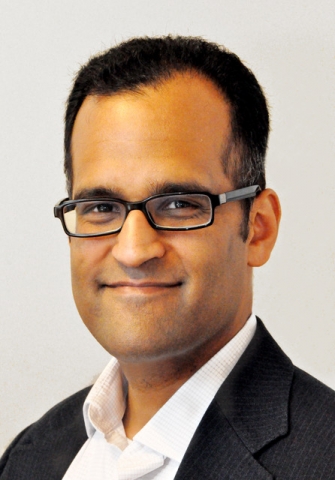
Date:
Location:
Speaker:
ABSTRACT:
Physical cues encoded within the tissue microenvironment can profoundly influence a wide range of cell behaviors, including morphology, motility, proliferation, and fate determination. This control is made possible by a series of micro- and nanoscale “machines” within the extracellular and intracellular spaces that convert mechanical and other biophysical inputs into biochemical signals and changes in gene expression. I will discuss three ways in which my research group has leveraged engineered materials systems to probe, model, and exploit mechanobiological signaling. First, I will present our efforts to identify molecular mechanisms through which neural stem cells sense extracellular matrix stiffness and incorporate this information into fate decisions. A key enabling tool in this work is a polymer hydrogel system that may be reversibly stiffened and softened through the use of oligonucleotide-based crosslinks, which we have used to identify a critical time window for mechanosensitive neurogenesis. Second, I will describe our combined use of single-cell photopatterning and femtosecond laser nanosurgery to probe the viscoelastic properties of actomyosin stress fibers in a highly standardized fashion. This approach has allowed us to elucidate relationships between fiber elastic energy and length with unprecedented clarity, as well as gain new insight into how specific stress fiber subtypes contribute to motility. Third, I will discuss our integration of engineered hyaluronic acid hydrogels with traditional cell and molecular biological approaches to develop next-generation culture models of the glioblastoma microenvironment. In the process, we have discovered surprising roles played by the hyaluronic acid receptor CD44 in driving adhesion and invasion.
BIO:
Sanjay Kumar, M.D., Ph.D., is Professor and Associate Chair of Bioengineering at UC Berkeley, where he has been a faculty member since 2005. He is also Professor of Chemical and Biomolecular Engineering at UC Berkeley and a Faculty Scientist in the Biological Systems & Engineering Division of Lawrence Berkeley National Laboratory. Dr. Kumar earned his B.S. in Chemical Engineering at the University of Minnesota (1996) and his M.D. and Ph.D. in Molecular Biophysics from Johns Hopkins University (2003). Prior to joining the UC Berkeley faculty, he completed postdoctoral training at Boston Children’s Hospital and Harvard Medical School. He and his research group have been fortunate to receive a number of honors, including the Presidential Early Career Award for Scientists and Engineers (PECASE), The NIH Director's New Innovator Award, The Arnold and Mabel Beckman Young Investigator Award, the NSF CAREER Award, and the Stem Cells Young Investigator Award. Dr. Kumar has also received awards by student vote for Excellence in Graduate Advising (UCSF/UC Berkeley Joint Graduate Group in Bioengineering) and Outstanding Teaching (Bioengineering Honor Society) and has served as a Presidential Chair Teaching Fellow. Dr. Kumar is a Fellow of AIMBE and BMES, and he was recently elected incoming Vice Chair of the GRC on Signal Transduction by Engineered Extracellular Matrices.



